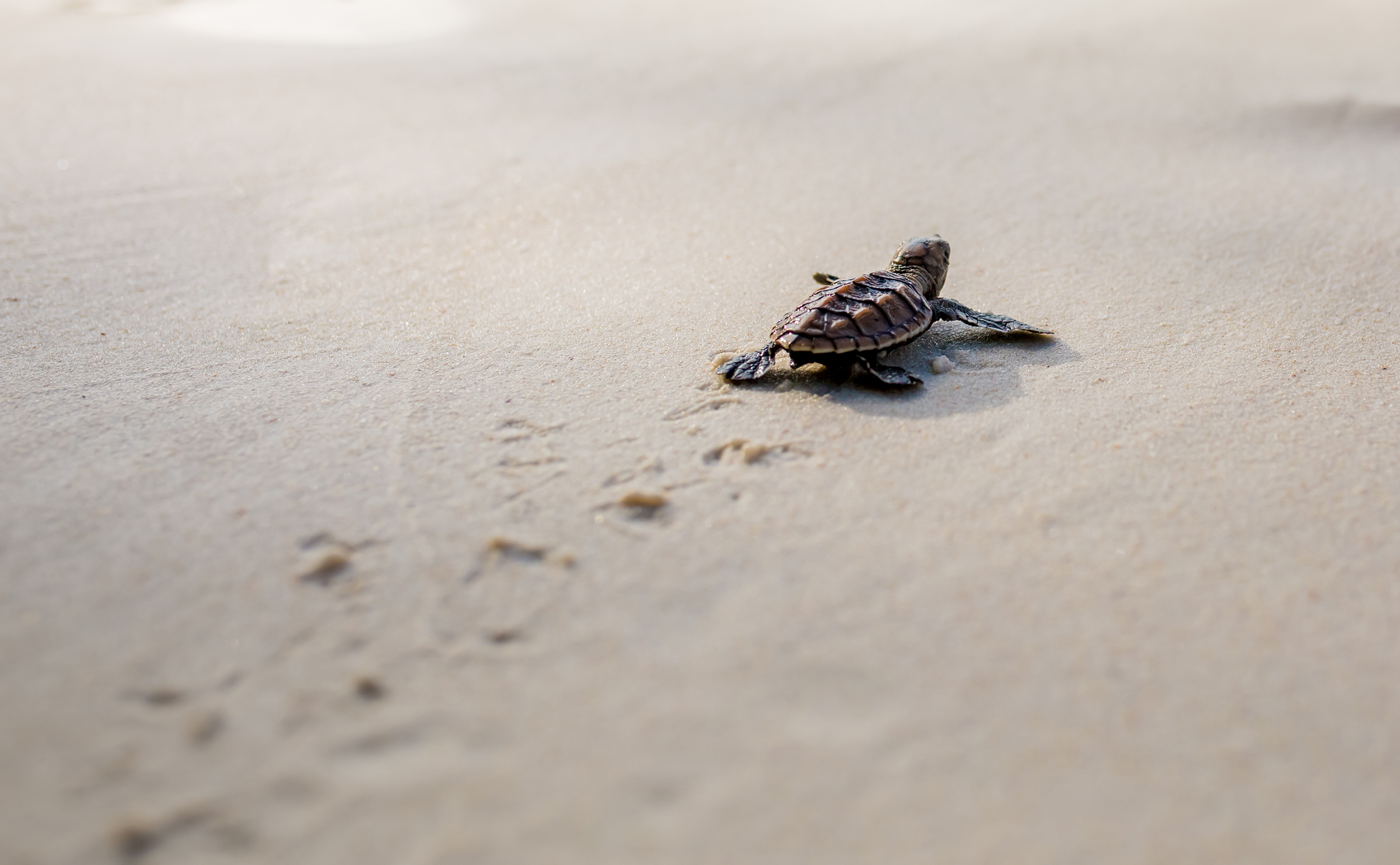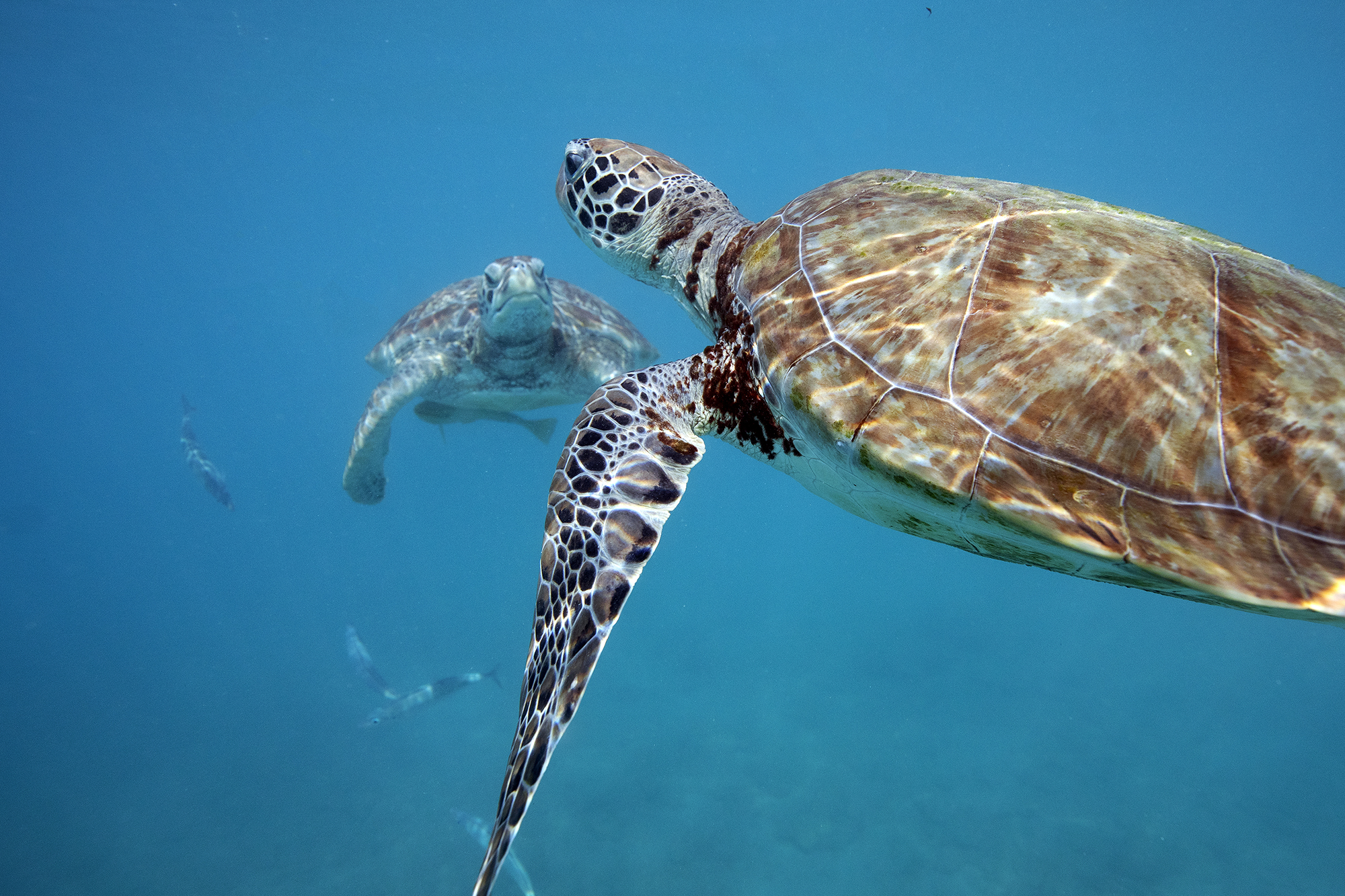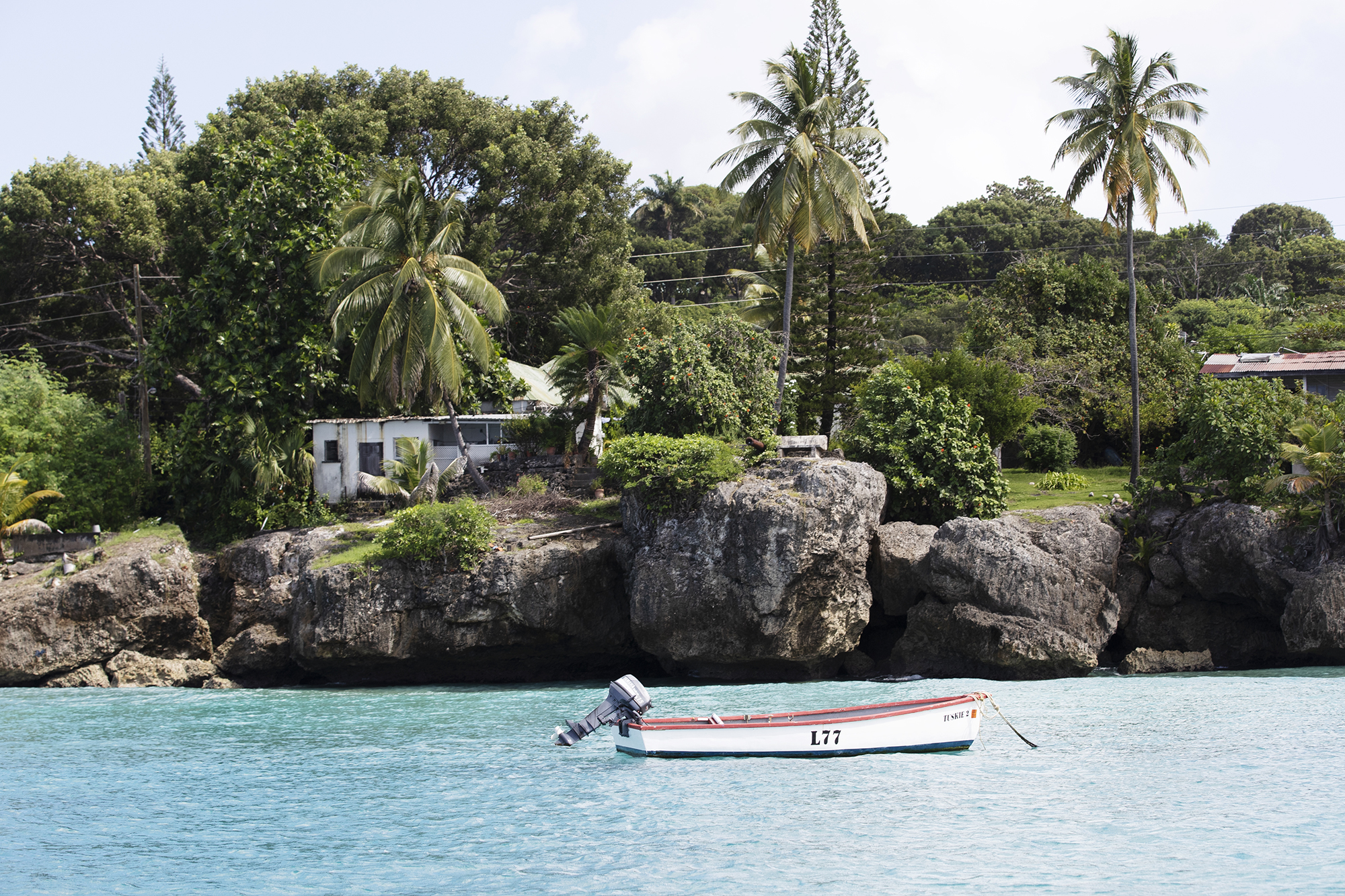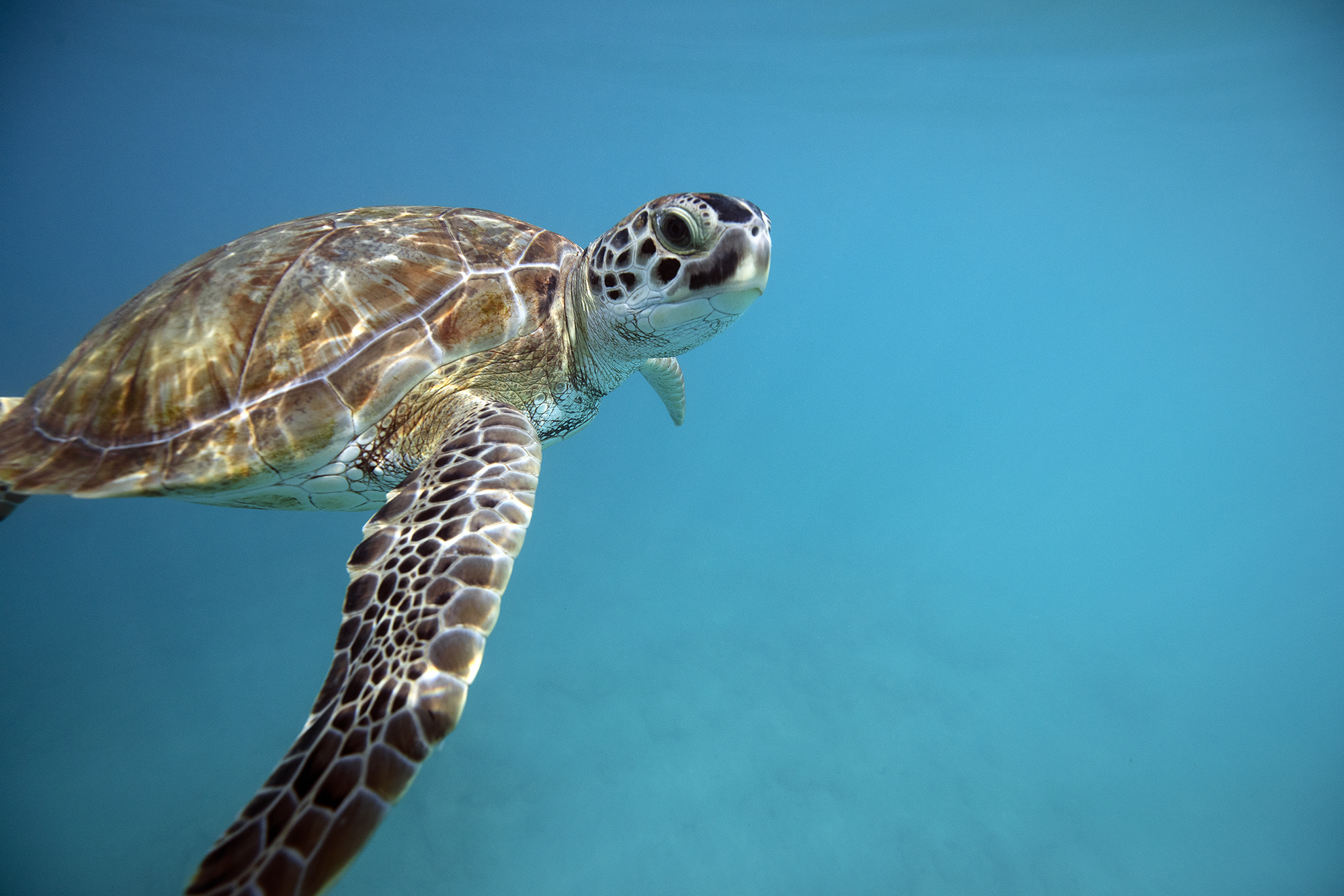The Barbados Sea Turtle Project is based at the University of the West Indies, Cave Hill Campus. The Project provides a 24-hour Sea Turtle Hotline (230-0142) year round which the public and visitors can use to call in information on turtles nesting, hatching of eggs, or lost or injured turtles. Project staff is called on to relocate nests made too close to the high tide line, to rescue hatchlings disoriented by hotel lights, and to rehabilitate turtles that have been accidentally hooked or partially drowned in fishing nets. In addition, Project staff patrol high-density nesting beaches nightly during the height of the nesting season, measuring and tagging nesting females and recording nest locations. This action allows information to be gathered that will determine if the Project’s conservation efforts are beginning to recover populations and serves as a deterrent to would-be poachers.

Adult turtles return to the beaches that they themselves hatched on 20-30 years previously, in order to make their own nests. These marine reptiles emerge from the water every 2-5 years and make 4-6 nests for the season. Where they locate their eggs is important, for sea-water kills the developing embryos. Furthermore, the sex of embryos is determined by sand temperature . . . cool temperatures found closer to the tide line produce males and warm temperatures produce females.

Between nesting seasons, these magnificent creatures undergo long migrations back to their feeding grounds. For instance, Barbados’ nesting Hawksbills forage in countries as far flung as Dominica and Venezuela. Our leatherbacks likely go even further afield, feeding in the productive waters of the North and East Atlantic.
Sea turtles are fascinating animals and an important natural resource for Barbados. Once considered important only for their meat, eggs and shells, the value of populations of sea turtles to Barbados’ eco-tourism industry is now being recognised. For instance, green turtles can be viewed by snorkellers close to shore at Mount Standfast near the Lone Star Restaurant. This is an initiative of the local fisherfolk community at Mount

Standfast and is testament to changing views about the value of sea turtles within the fishing community. Many of the local sailing cruises make regular visits to this bay where visitors can swim and mingle with these gentle creatures. Children find this especially fascinating and often refer to their visit with the turtles as the highlight of their holiday.
At the request of the Government of Barbados, the Barbados Sea Turtle Project monitors the impact of this daily traffic on the green turtles. The contribution that sea turtles make to the health of our reefs is also now being appreciated.

Hawksbills feed almost exclusively on sponges associated with coral reefs, one of very few vertebrates that can cope with such an indigestible diet! They can therefore play an important role in controlling growth of sponges, and prevent sponges from out-competing corals for space on the reef. Nesting Hawksbill Sea Turtles can be readily seen on our beaches, but are easily disturbed whilst nesting. Care should be taken if you are lucky enough to spot one on the beach. Call the Sea Turtle Hotline and the Project’s trained personnel will come to the beach to record the nesting event and take data on the female. They will be happy to share their information with you. Additionally, you can call the Hotline if you are interested in witnessing the release of turtle hatchlings. They keep an up-to-date list of names, with contact information of interested persons, and will call to inform you of where and when you can observe this very special, heart-warming event. The Project relies heavily on sponsorship to continue its activities. Donations can be sent to the Barbados Sea Turtle Project, c/o Dr. Julia Horrocks, Department of Biological and Chemical Sciences, University of the West Indies, Cave Hill Campus, St. Michael, Barbados. ]ulia Horrocks, Ph.D., is the Director of the Barbados Sea Turtle Project.
Article Source - Ins & Outs Barbados (Miller Publishing)